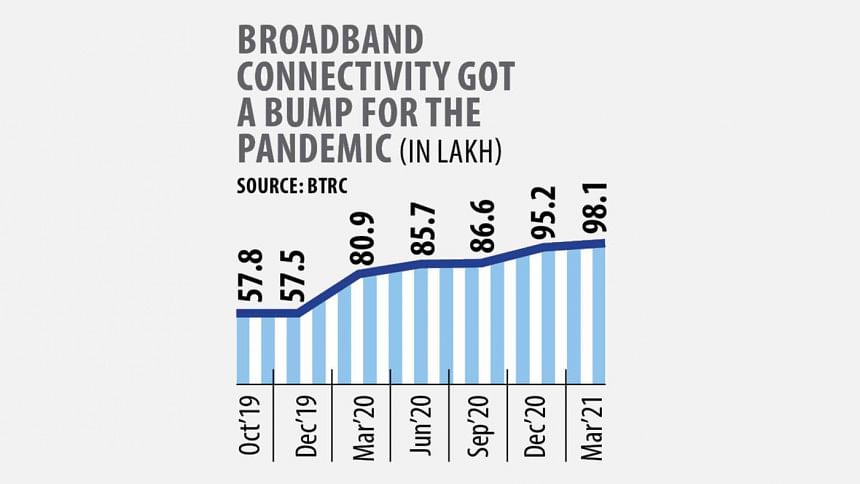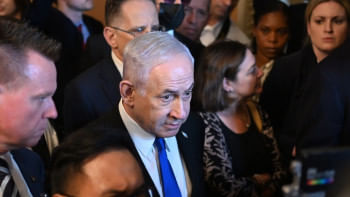BTRC’S new broadband tariff: Would it bring cheap internet? Unlikely

The Bangladesh Telecommunication Regulatory Commission's move on Sunday to fix the broadband prices brings to mind an oft-used quote by celebrated French author Antoine de Saint-Exupéry: A goal without a plan is nothing but a wish.
On paper, the move has all the ingredients to be a gamechanger for the 'Digital Bangladesh' agenda: in one sweeping stroke, the government made broadband internet accessible and affordable from anywhere in the country -- right away.

The prices set -- Tk 500 for 5 megabits per second (Mbps), Tk 700-800 for 10 Mbps, and Tk 1,110-1,200 for 20 Mbps -- are indeed a bargain for those who live outside of Dhaka, who currently have to pay many times over for broadband connection.
This is particularly great news for the legions of information technology-enabled services freelancers such as graphics designers, software engineers, mobile app developers, business process outsourcing professionals as well as the e-commerce platforms not based in Dhaka. Their overhead for internet connection would simply come down.
Given the cheap internet and the rise of edtech platforms geared towards teaching coding, the move could potentially go on to create a populace of software engineers and IT professionals in second- or third-tier cities.
No doubt it is a well-intentioned move, but the problem is the BTRC has not actually thought through the logistics of making it work.
For the internet service providers (ISPs), the cost of service includes the price for bandwidth, the cost for transmission and maintenance cost.
Of the three, the ISPs can more or less calibrate the maintenance cost, leaving them at the mercy of third parties for the other two crucial elements of their service.
When there has been no pricing guideline for the nationwide telecommunication transmission network (NTTN) operators or the international internet gateway (IIG) providers, how does the BTRC expect the ISPs to manage the new lower rates?
And this is where the BTRC's objective of cheaper internet, particularly in rural areas, falls flat on its face. It simply did not have a plan on how to achieve its goal.
The price ceiling fixed is impracticable and not sustainable, according to the ISPs who spoke on the condition of anonymity to talk candidly on the foolhardy nature of the BTRC order.
For ISPs in Dhaka and Chittagong, such rates would still be manageable given the density of the transmission network. But as one travels outside the two cities, the prices set are simply unworkable.
"It would be particularly challenging for the smaller ISPs," said MA Hakim, president of the Internet Service Providers Association of Bangladesh.
For the BTRC's plan to work at all, he demanded the NTTN and IIG providers' rates to be fixed as well as a service-level agreement for them.
The most crucial element for effective functioning of telecommunication services is transmission, according to Abu Saeed Khan, senior policy fellow at LIRNEasia, a Colombo-based information and communication technology policy and regulation think-tank active in the Asia Pacific region.
"But our transmission system is flawed."
The task of transmission by way of optical fibre is in the hands of two companies: Fiber@Home and Summit Communications.
"And the two are not in a position to deliver," Khan said.
The mobile operators and the ISPs are reliant on the two companies for their transmission.
"And the government's plan for a nationwide transmission network rollout through the two companies has failed. Only 35 percent of the mobile operators' transmission is through optical fibre, which goes to show how pathetic our transmission backbone is."
And what makes for a grim reading is the situation is unlikely to get any better in the foreseeable future.
The industry is suffering from a dearth of human capital in optical fibre, according to Khan.
And the reason for this is a government policy that barred mobile operators from laying out their own optical fibres.
"This anti-investment policy of the government has crippled the sector. The mobile operators are the biggest investors in the telecom industry," Khan said, adding that things began to go sideways for the telecom industry in 2007, before the current Awami League came to power.
In the absence of any improvement in the transmission network, the BTRC's move on Sunday actually bodes bad news for end-users.
Make no mistake, the ISPs would still follow the BTRC's order -- but on paper. For the new pricing regime to make a business case for them, something has to give and that would be by way of slower internet speed.
At present, one broadband line is split between 3-4 users. Under the new pricing structure, the ISPs might opt to divide the line amongst 20 users, meaning dilution of the internet speed.
On paper, one might still be paying Tk 500 for 5 Mbps. Whether one is actually getting that internet speed at that price is highly doubtful.
This begs the question: what was the point of the grandiloquent announcement without any groundwork?
And as Dwight D Eisenhower, former American president, once said: Plans are nothing; planning is everything.

 For all latest news, follow The Daily Star's Google News channel.
For all latest news, follow The Daily Star's Google News channel. 



Comments